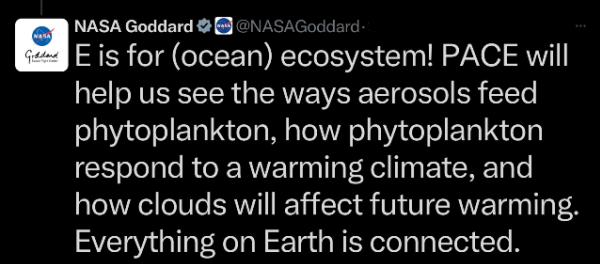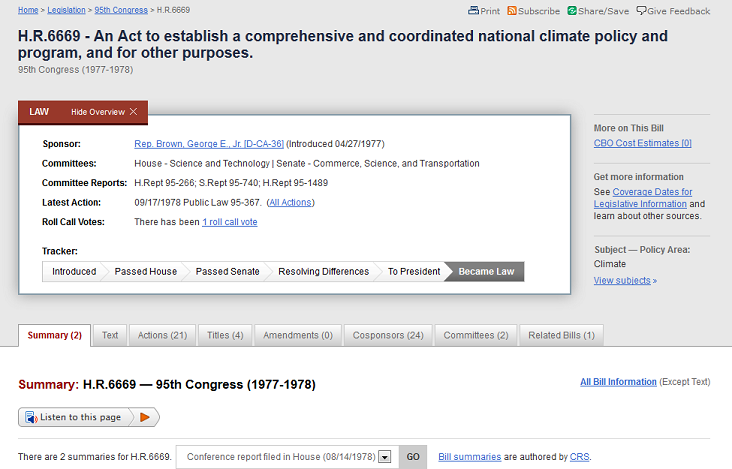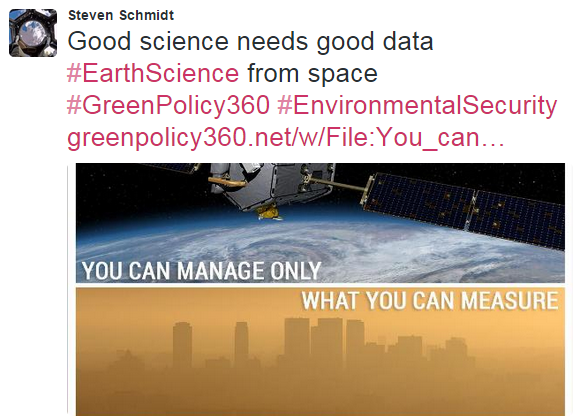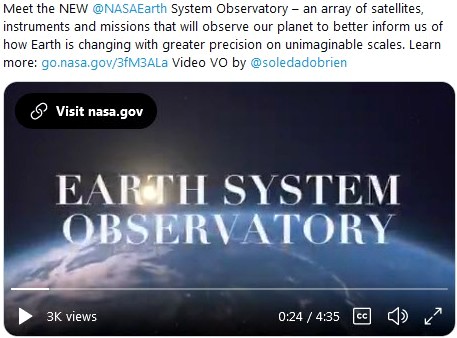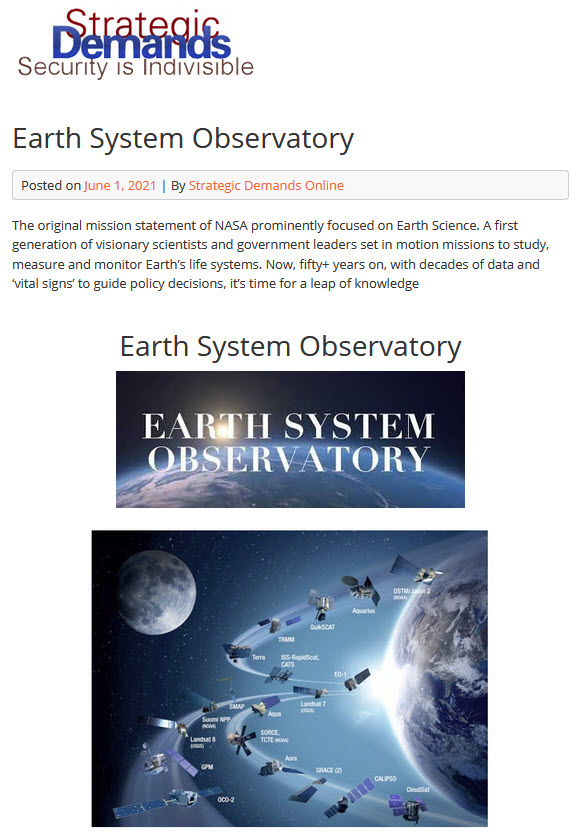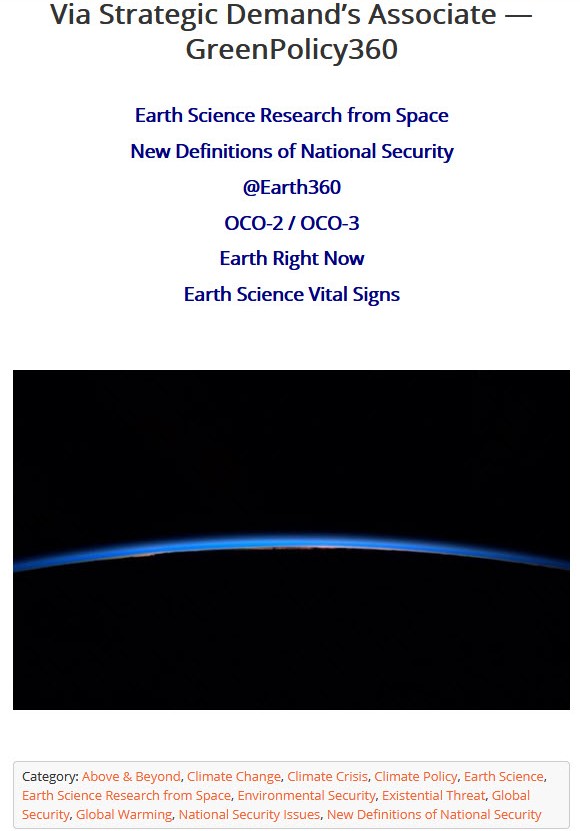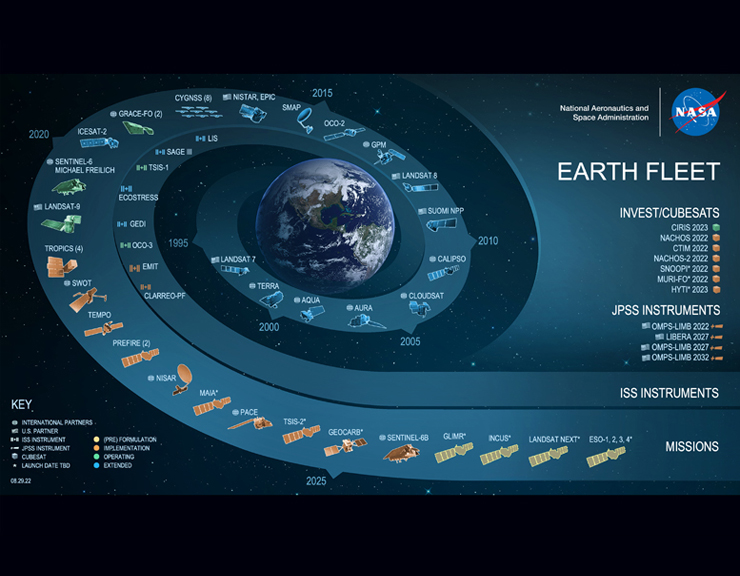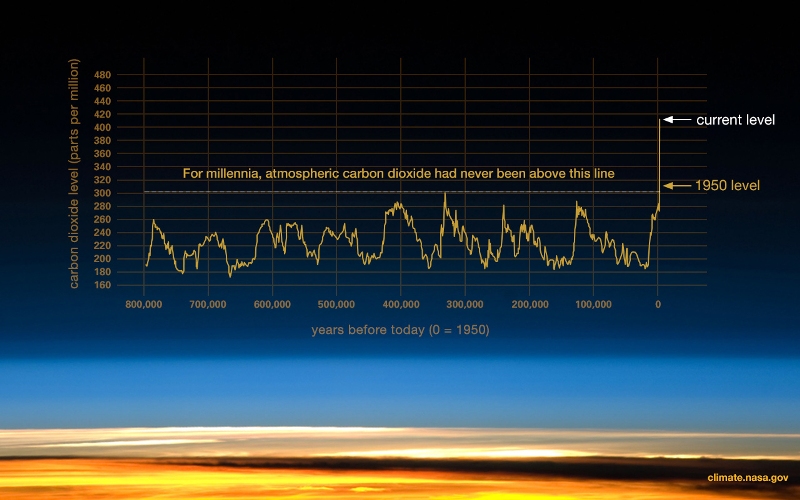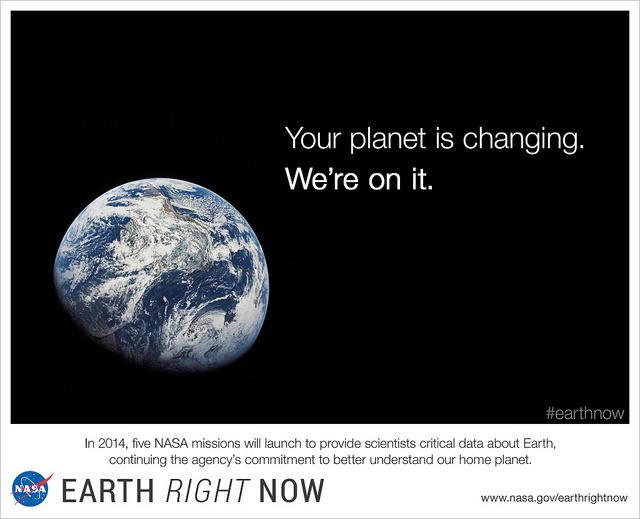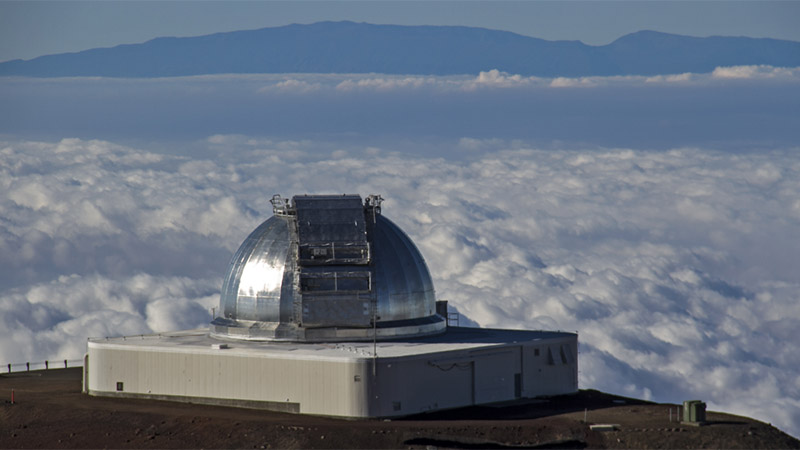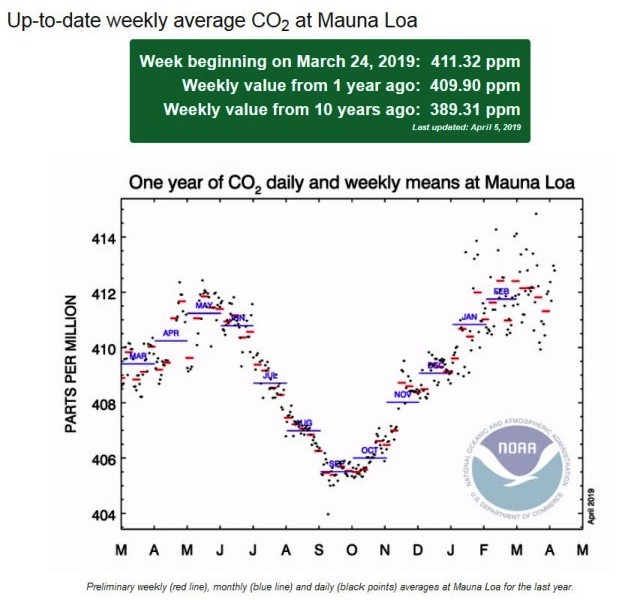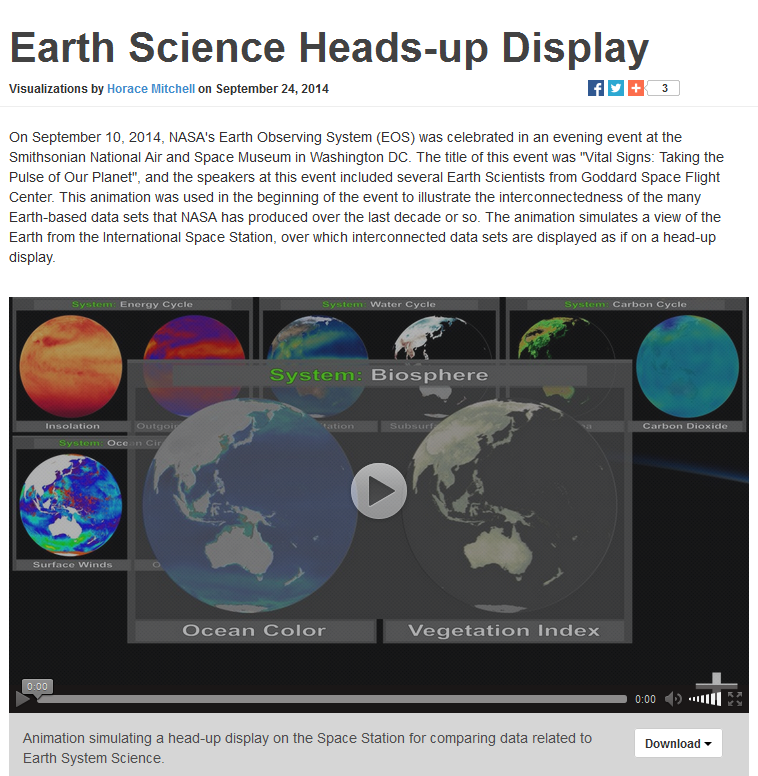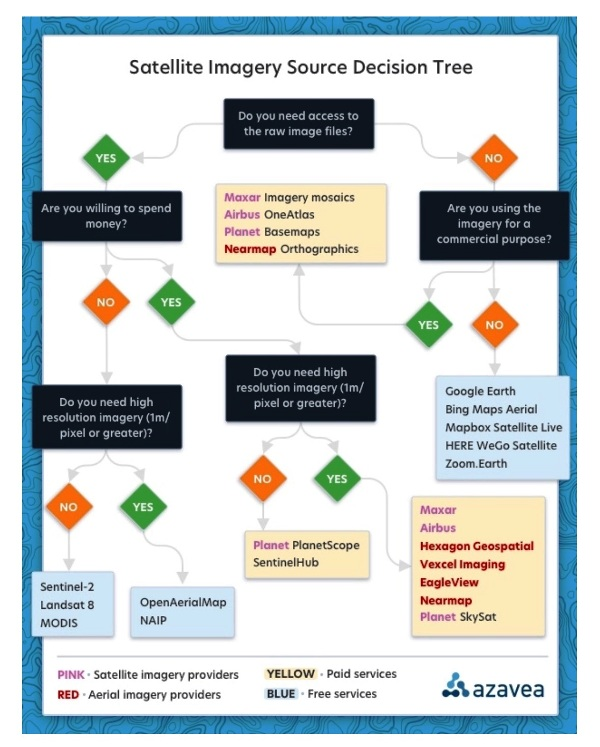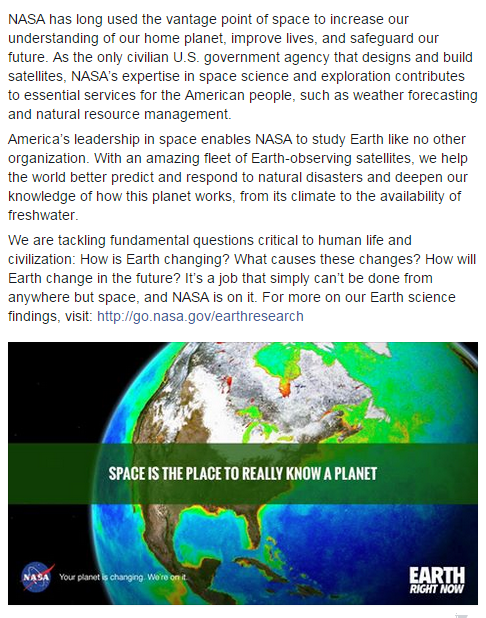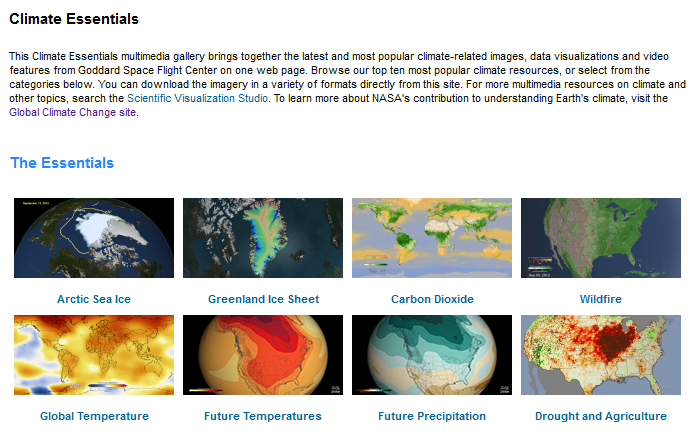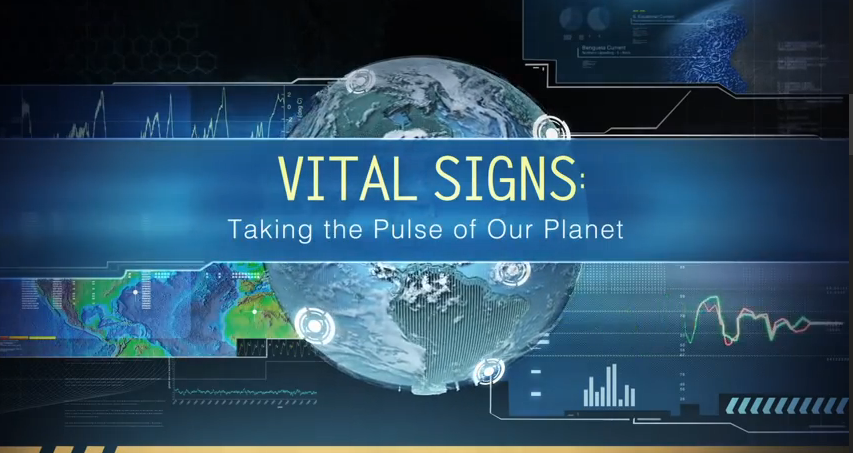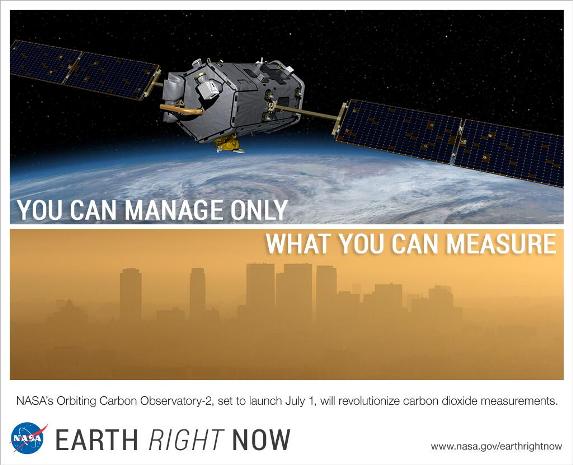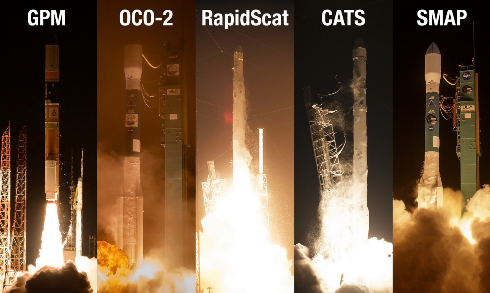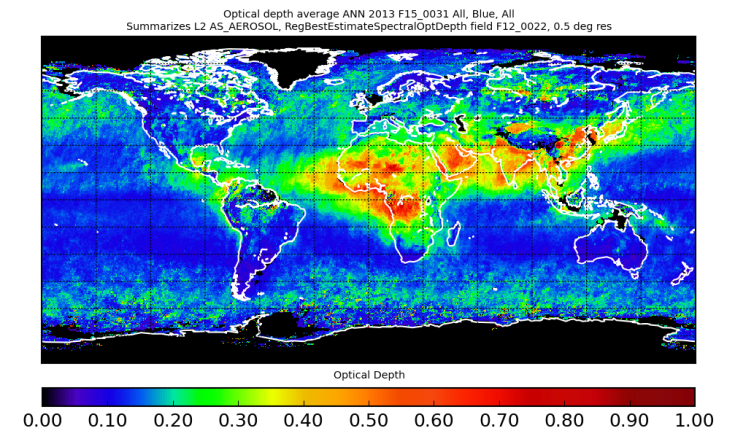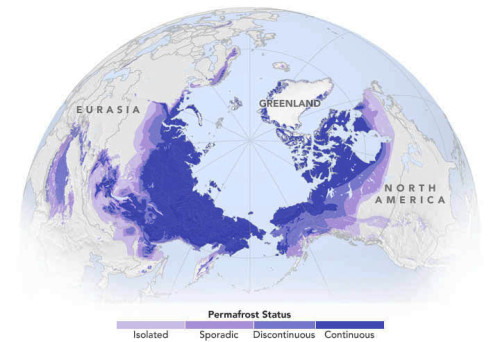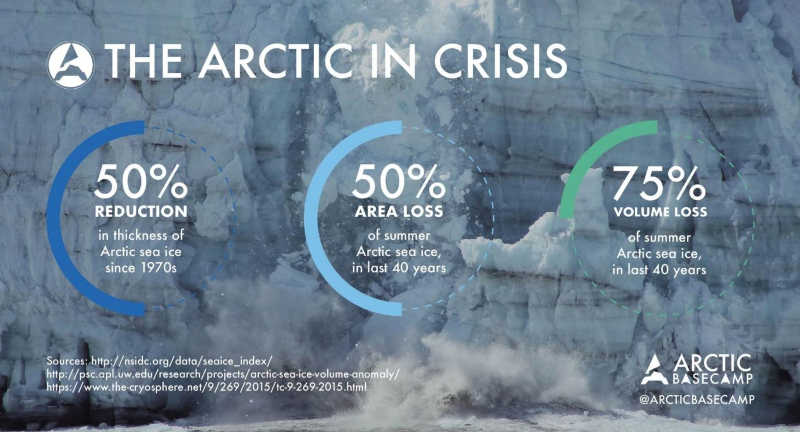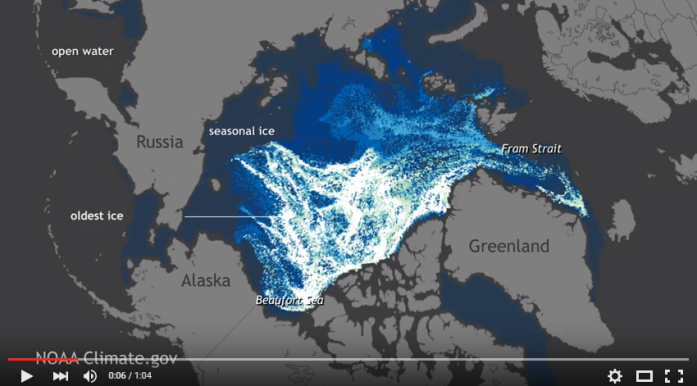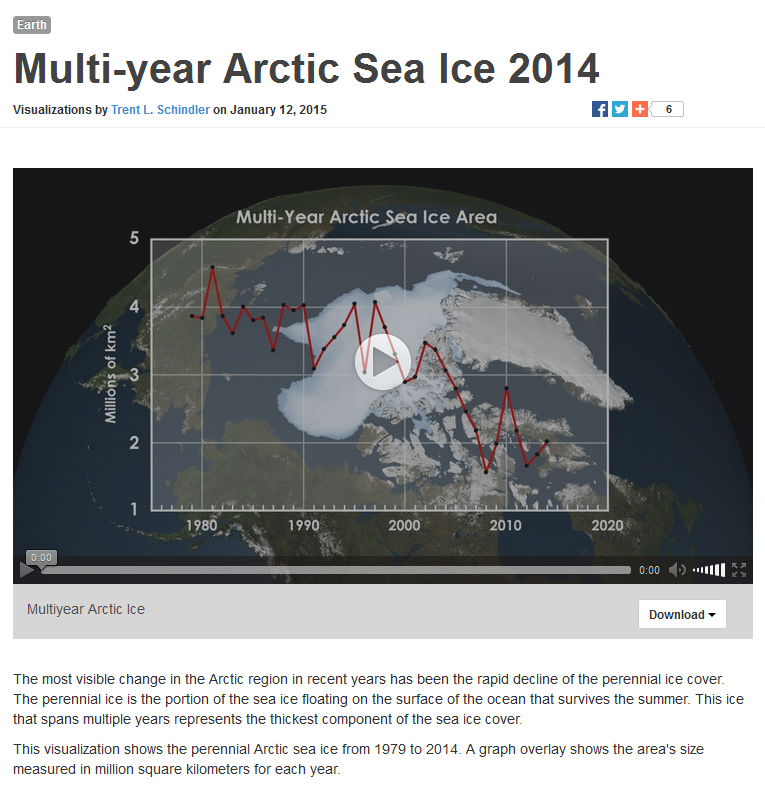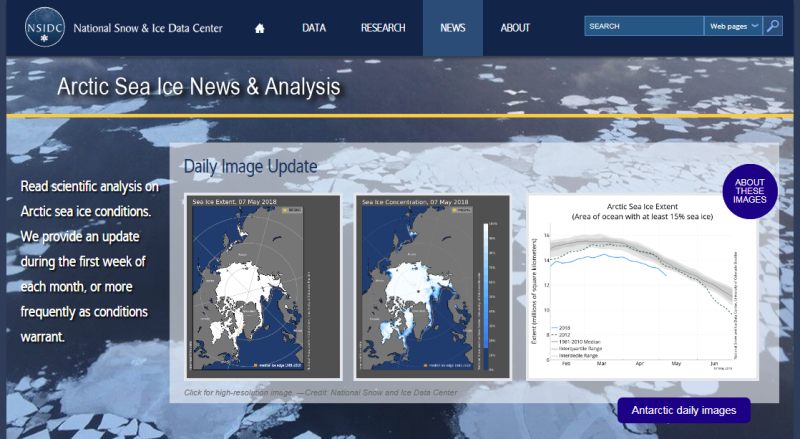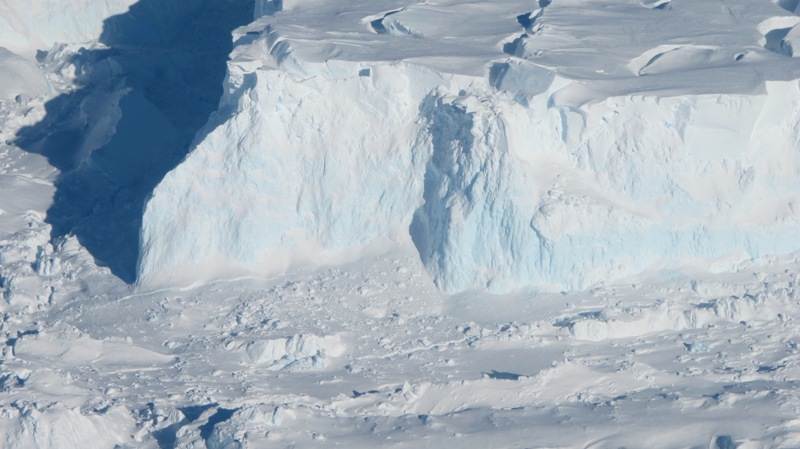Earth Science Vital Signs
Atmospheric Science | ThinBlueLayer.com | Climate Policy | Earth Science Research from Space | Planet Citizens
NASA
2024
Earth System Science, Connections, Dynamic Change
‘Uncharted territory’ as Earth's vital signs show worsening condition
Climate Reports with Vital Signs in "BioScience", Global, Academic, Peer-Reviewed Publication
CORVALLIS, Ore. – An international coalition of climate scientists says in a paper published today that the Earth’s vital signs have worsened beyond anything humans have yet seen, to the point that life on the planet is imperiled.
William Ripple, a distinguished professor in the Oregon State University College of Forestry, and former OSU postdoctoral researcher Christopher Wolf are the lead authors of the report, and 10 other U.S. and global scientists are co-authors.
“Without actions that address the root problem of humanity taking more from the Earth than it can safely give, we’re on our way to the potential collapse of natural and socioeconomic systems and a world with unbearable heat and shortages of food and freshwater,” Wolf said.
Published in BioScience, “The 2023 State of the climate report: Entering uncharted territory” notes that 20 of 35 planetary vital signs the authors use to track climate change are at record extremes...
Generation Green…Planet Citizen Action…Climate Problems, Climate Solutions
SJS/GreenPolicy360:
"We are the first generation to scientifically and systemically monitor Earth's 'Vital Signs'"
Read about how Earth Science smissions were envision and launched in the 1970s to 'measure and manage' Earth's system. These missions have expanded over the decades and Earth Observation data provide critically essential tools now for policy makers worldwide...
- https://www.greenpolicy360.net/w/Planet_Citizens,_Planet_Scientists
- https://www.greenpolicy360.net/w/George_E._Brown_Jr
- https://www.greenpolicy360.net/w/Earth_Science_Research_from_Space
Planet Citizen Vision of Living Earth
"As 'planet citizens' we must act to protect Earth's living systems. The well-being of future generations is in our hands."
🌎
Planet Citizens, Planet Scientists
Intro to the concept of measuring and monitoring "vital signs", as with medical best practices that utilize the data derived from patient vital signs to chart health diagnoses, interventions and wellness-planning...
The modern environmental movement and practitioners like Rep. George E. Brown were visionary in the 1960s/1970s. Review GreenPolicy360 history and stories of the 'early days' of Earth Science, instrumentation, monitoring/measuring bio-systems, inventing, launching and gathering digital data, research, databanks tracking dynamics of change.
Beginnings of the Modern Environmental Movement
* https://www.greenpolicy360.net/mw/images/1969_beginnings_of_the_modern_environmental_movement.pdf
Memories of the first National Climate Act legislation (Drafted by Rep. George E. Brown) -- 1978
Planet Citizens, Planet Scientists, Preserving & Protecting the Home Planet Earth
GreenPolicy360: The original Mission Statement of the newly launched U.S. space program spoke of our planet and our responsibilities. GreenPolicy360's founder was fortunate, beginning in the 1960s, to listen to Congressman Brown Congressman George E. Brown point to the NASA plan and explain how he saw Congress put into action the reality of a multi-year, coordinated, multi-agency program to achieve mission goals.
Earth science, measuring and monitoring Earth's life-enabling systems was given highest priority. Landsat's program was set in motion as a decades long, first-ever digital scanning remote satellites data collecting study. An array of satellites began to launch, creating and combining the expanding resources of NASA, USGS, NOAA, and an array of educational and scientific institutions and aeronautics business.
The overall goal, Representative Brown continually explained in his Congressional Science, Space & Technology leadership roles over the decades, was to 'understand, preserve and protect our planet' as we, humanity, developed first-generation Earth Science and looked beyond Planet Earth to study 'the heavens'.
George, as a senior member and as a chair of oversight committees, knew that we needed to speed up the science on environmental protection, climate, 'measuring and monitoring' and NASA-NOAA-JPL and all the research/data/missions became his legacy. The NASA Earth Observing System and open access to the scientific data, across scientific endeavors globally, is my friend George today still here in action....
Here's to George E. Brown Jr who led Earth Science initiatives and environmental law action in the U.S. Congress for three decades. Here's to the many visionaries, thinkers and doers who have carried on preserving and protecting our home planet.
Earth Science, Climate Science
The Carbon Dioxide Theory of Climatic Change
I'm personally recalling Congressman George Brown explaining to Senator Gaylord Nelson in a 1970 planning meeting how we needed data, climate info with a baseline and access to the data sets for scientists, educators, and public. Representative Brown told the Senator, who is now credited with officially setting in motion the planning of the first "Earth Day" that he'd get the job going in his committee oversight role. He did -- for three decades George Brown shepherded NASA/NOAA/USGS/JPL and a flock of Earth Science missions, programs and their funding.
Steven Schmidt/GreenPolicy360 Siterunner: #EarthScience since the launch of #EarthDay in 1970.
On the 50th Anniversary
Memories on the Road to the First Earth Day
By Steve Schmidt
* https://www.greenpolicy360.net/w/Earth_Day_Memories_on_the_50th_Anniversary
🌎
'My friend George' was referred to over the years and decades in Congress as the 'Big Science' man ... George Brown saw the Earth Science mission of NASA, NOAA, the USGS and EPA, and NEPA and on and on as his duty and responsibility. Today, we have a legacy of this work, our colleague and humanity's representative. Tip of our green hat to George.
Official portrait in Room 2318 of the Rayburn House Office Building,
- the Committee on Science, Space, and Technology, Subcommittee on Space
Congressman George E. Brown
Read about George E. Brown, 1960s through the 1990s
Read and investigate the latest on 'Earth Science Vital Signs' data gathering missions...
Tap into Data from Today's Fleets of Earth Observing Satellites
Steve Schmidt / Facebook post, February 10, 2023
An Earth Observing System, an EOS, Eco Operating System
····························································
NASA - Global Climate Change
Images of Change
31 Vital Earth Signs
'Virtual signs' worsening
Tipping points, deepening disaster
Researchers, part of a group of more than 14,000 scientists who have signed on to an initiative declaring a worldwide climate emergency, said that governments had consistently failed to address the root cause of climate change: "the overexploitation of the Earth".
Of 31 "vital signs"—key metrics of planetary health that include greenhouse gas emissions, glacier thickness, sea-ice extent and deforestation—they found that 18 hit record highs or lows.
- ·····································································································
The Earth Science Mission of NASA
In 2021, NASA announces a new Earth System Observatory expanding a Climate Change focus within the Earth Science Multi-Decade Mission
·····················································································
Evidence & Facts, Data & Science
Climate Change: The Face, the Evidence
• https://climate.nasa.gov/evidence/
The Earth's climate has changed throughout history. Just in the last 650,000 years there have been seven cycles of glacial advance and retreat, with the abrupt end of the last ice age about 7,000 years ago marking the beginning of the modern climate era — and of human civilization. Most of these climate changes are attributed to very small variations in Earth’s orbit that change the amount of solar energy our planet receives.
Scientific evidence for warming of the climate system is unequivocal
- Intergovernmental Panel on Climate Change
The current warming trend is of particular significance because most of it is extremely likely (greater than 95 percent probability) to be the result of human activity since the mid-20th century and proceeding at a rate that is unprecedented over decades to millennia.
Earth-orbiting satellites and other technological advances have enabled scientists to see the big picture, collecting many different types of information about our planet and its climate on a global scale. This body of data, collected over many years, reveals the signals of a changing climate.
The heat-trapping nature of carbon dioxide and other gases was demonstrated in the mid-19th century. Their ability to affect the transfer of infrared energy through the atmosphere is the scientific basis of many instruments flown by NASA. There is no question that increased levels of greenhouse gases must cause the Earth to warm in response.
Ice cores drawn from Greenland, Antarctica, and tropical mountain glaciers show that the Earth’s climate responds to changes in greenhouse gas levels. Ancient evidence can also be found in tree rings, ocean sediments, coral reefs, and layers of sedimentary rocks. This ancient, or paleoclimate, evidence reveals that current warming is occurring roughly ten times faster than the average rate of ice-age-recovery warming.
Strategic Demands, Critical
New Definitions of National Security
"Vital Signs of the Planet"
- Critical Missions to Monitor the Health of Earth's Life-Enabling Systems
Pulse of the Planet / Vital Signs... Climate Change
Climate Change: Vital Signs App
Measuring and Monitoring
"We don't know a planet like this." That was the reaction of meteorologist Eric Holthaus to news that atmospheric carbon dioxide levels have reached heights not seen in the entirety of human existence -- not history, existence.
According to data from the Mauna Loa Observatory in Hawaii, the concentration of CO2 in the atmosphere is over 415 parts per million (ppm), far higher than at any point in the last 800,000 years, since before the evolution of homo sapiens.
Oh NOAA, Oh Mauna Loa
https://gml.noaa.gov/webdata/ccgg/trends/co2_data_mlo.png
- https://www.esrl.noaa.gov/gmd/ccgg/trends/index.html
- https://www.esrl.noaa.gov/gmd/ccgg/trends/monthly.html
- https://www.esrl.noaa.gov/gmd/ccgg/trends/full.html
- Oh Mauna, what a Keeling Curve you have
- Keeling's Curve has been called one of the most important scientific works of the 20th century
- ·························································································
- ···········································
- Earth Research: Science to Preserve & Protect Life
- Vital Signs: Measuring to Manage
World Scientists’ Warning to Humanity: A Second Notice
NASA Climate: Vital Signs of the Planet
🌎
🌎
Vital Signs: Taking the Pulse of the Planet (video)
NASA Earth Observing Satellite Fleet / August 2014
NASA Earth Sciences - Asks Public to Join In
Earth Science and Monitoring from Space
○ ○ ○ ○ ○ ○ ○ ○ ○ ○ ○ ○ ○ ○ ○ ○
- NASA Missions / Earth Right Now
○ ○ ○ ○ ○ ○ ○ ○ ○ ○ ○ ○ ○ ○
Collections of Home Earth Imagery
NASA Scientific Visualization Studio
○ ○ ○ ○ ○ ○ ○ ○ ○ ○ ○ ○ ○ ○
The Atmospheric Science Data Center (ASDC) at NASA Langley Research Center
ASDC is a crucial hub for the NASA Earth science program responsible for processing, archival, and distribution of Earth science data in the areas of radiation budget, clouds, aerosols, and tropospheric chemistry
- ○ ○ ○ ○ ○ ○ ○ ○
○ ○ ○ ○ ○ ○ ○ ○ ○ ○ ○ ○ ○ ○ ○ ○ ○ ○ ○ ○ ○ ○
What Happens in the Arctic Doesn't Stay in the Arctic
Arctic Undergoing Most Unprecedented Transition in Human History
○
Thwaites Glacier, Antarctica
What Happens in Antarctica Doesn't Stay in Antarctica
• Via National Geographic / Watching Thwaites Glacier Up Close and Personal by Elizabeth Rush
The Thwaites Glacier is often considered one of the most important when it comes to changes in sea level....
Along with Thwaites the overwhelming majority of the world’s glaciers have begun to withdraw...
🌎
- Additional Website Resources - Linked Data - Green Best Practices
- Antarctica
- Anthropocene
- Arctic
- Atmospheric Science
- Biodiversity
- Citizen Science
- Climate Change
- Climate Policy
- Democracy
- Earth360
- Earth
- Earth Law
- Earth Observations
- Earth Imaging
- Earth Science
- Earth Science from Space
- Earth System Science
- Eco-nomics
- Ecology Studies
- Environmental Full-cost Accounting
- Environmental Protection
- Environmental Security
- Environmental Security, National Security
- EOS eco Operating System
- ESA
- Externalities
- Global Security
- Health
- ISS
- Land Ethic
- Nature
- New Space
- Oceans
- Ocean Ecosystem
- Ocean Science
- Ocean Sustainability
- Planet Citizen
- Planet Citizens
- Planet Scientist
- Planet Citizens, Planet Scientists
- Sea-level Rise
- Solar Energy
- Strategic Demands
- Sustainability
- Sustainability Policies
- ThinBlueLayer
- Virtual Planet
- Biogeosciences
- Cryosphere
- Geophysics and Geochemistry
- Mineralogy
- Geology
- Geophysics
- Hydrology
- Natural Resources
- Planetary Science
- United Nations
- United Nations Framework Convention on Climate Change
- US Environmental Protection Agency

